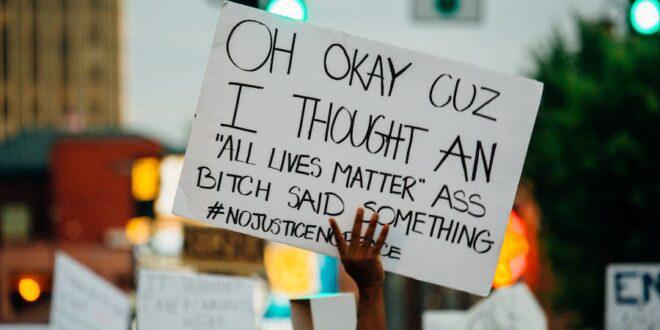Many people need to comprehend the distinction between civil rights and human rights. The two terms are used similarly in common usage, but they are distinct in significant ways.
Both concepts are intricately related. Your state-guaranteed civil rights are in violation if you are denied a reasonable hearing by a distinct, impartial court. If someone restricts your freedom of movement, they violate your civil and human rights.
Rights can be broken down into two: Social and welfare rights, those that reflect evolving human desires. Civil and political rights, those that are safeguarded by the law and the Constitution.
What Are Human Rights?
Human rights are a set of concepts that outline all humans’ fundamental rights by virtue of their humanity.
These rights are inalienable, meaning no government, organization, or individual can remove or restrict them.
Most people agree on fundamental human rights:
- The right to life, security, and liberty
- The right to a fair trial and due process of law
- Equal protection under the law
Even though these rights are not codified in a single document, they are codified in international law.
In several international treaties and declarations, such as the Universal Declaration of Human Rights. In some locations, state constitutions and other laws also protect human rights.
Everyone possesses the same inalienable human rights, regardless of their formal status. The government cannot take away a person’s human rights, but various nations can grant or revoke certain civil freedoms and rights.
What Are Civil Rights?
Everyone has equal civil rights, social opportunities, and legal protections, regardless of race, gender, or other personal characteristics.
People’s human rights are violated when they are not permitted to partake in politics, a crucial aspect of any government.
In contrast to civil liberties safeguarded by limiting the government’s power, civil rights are government actions, typically statutes.
Civil rights regulations aim to grant full and equal status to individuals who have been discriminated against due to their group membership.
When many individuals believe that civil rights are not being respected adequately, a civil rights movement may emerge to demand that the law be applied equally and without bias. Movement participants may also utilize identity politics.
Civil Rights vs. Civil Liberties
Judges and legislators define civil liberties as the rights granted by a general law, such as the Bill of Rights in the United States, to the citizens of a country. An example is the First Amendment, which safeguards freedom of speech.
Human rights include freedom from slavery, torture, and religious persecution for all people, regardless of location. Civil rights and civil protections differ slightly.
Civil Rights Change
In other categories of rights, such as human rights, individuals obtain their rights naturally, presumably naturally.
However, the state must provide and protect civil rights. Due to this, they vary significantly according to period, society, and form of government.
In addition, they tend to adhere to cultural trends that support or oppose particular forms of discrimination.
In some Western nations, the civil rights of bisexual, transgender, and queer individuals have only recently become a significant political issue.
It is crucial to remember that a person’s civil rights depend on where they claim to be from. Civil rights are essentially an agreement between the individual and the country or state in which they reside.
When a nation violates its civil rights, international organizations and tribunals are less likely to intervene than when human rights are violated. All governments should share the same human rights, but their civil rights vary greatly.
No country can take away a person’s human rights, but different states can grant or revoke certain civil rights. Consequently, civil rights disputes typically occur at the local or national level instead of the international level.
On paper, there may be a promise of civil rights. To ensure civil rights protection, however, more people must be aware of civil rights issues and take action.
The majority of changes to civil rights regulations were brought about by international civil rights organizations, many of which interacted in the 1960s.
Why Do Civil Rights Matter?
Civil rights are necessary because they ensure everyone’s safety. They guarantee that residents can appreciate life, liberty, and the pursuit of happiness, as stated in the Declaration of Independence. This implies that governments are obligated to protect and defend human rights.
A person’s civil rights are violated when their freedom is restricted based on one of the protected characteristics. In these circumstances, government employees, such as police officers, frequently engage in undesirable behavior.
What’s the difference
People often confuse civil freedoms and civil rights because they both pertain to the freedom of individuals, but there is a substantial distinction between the two.
Civil liberties, such as the right to free expression and religion, are Constitutionally protected human rights.
On the other hand, civil rights are the liberty to be regarded equitably by the government, regardless of race, gender, or other factors.
Civil liberties and civil rights are necessary for a government to function, but they serve distinct purposes.
Civil rights ensure that everyone is regarded equally and fairly by the law. Whereas civil freedoms prevent the government from interfering in individuals’ private affairs without justification.
What Are Civil Rights Violations?
A civil rights violation is any unjust treatment that violates a person’s fundamental civil rights. Civil rights violations by state and local governments, private individuals, or enterprises are kept in check by the United States Constitution and federal law.
Infractions of civil rights include discrimination in employment, housing, education, politics, and access to public services and resources. Police brutalities, such as excessive use of force or fabrication of allegations, could also be included.
There are numerous ways civil rights can be violated. Here are a few of the most common:
- False inquiries and arrests by the police
- Getting in jeopardy for reporting workplace discrimination
- Hate crimes
- Being denied admission to a school due to a language barrier
- Human trafficking
- Being terminated, reassigned, paid less, or given more work due to your nationality or gender
- Discrimination based on gender in a school sport or program
- The use of force by the police
- Inability to obtain a loan, housing, or permit due to one’s ethnicity, gender, or disability
Civil Rights Key Takeaways
International monitoring groups assert that while most Western nations now take civil rights for granted, the situation in the United States has deteriorated.
The global struggle against terrorism began on September 11, 2001. Many nations have restricted human rights to ensure their citizens’ safety.
For instance, civil rights laws are frequently enacted to ensure that discriminated-against groups are treated fairly.
Many civil rights laws in the United States, for example, are based on protected classes of people including gender and race. Civil rights protect individuals from unfair treatment based on disability, race, gender and age.
Governments enact civil rights legislation to safeguard the equal treatment of historically discriminated groups.
Civil rights are certain liberties enumerated in a legally binding document, such as the US Bill of Rights, and interpreted by the courts.
Civil Right Lawyer
All civil rights attorneys work tirelessly to combat prejudice and defend the rights of those who do not receive adequate assistance.
Some civil rights attorneys work for the government, as well as private companies or nonprofit organizations. Some attorneys specialize in a single area of law, such as employment law or school law.
There are always openings for civil rights attorneys because everyone must be assured they have the same civil protections under the law.
Civil rights lawyers only accept cases in which a protected group member alleges discrimination. Civil rights attorneys safeguard people’s rights, such as free speech.
They prepare documents for clients, accompany them to court, and help settle cases. Their daily responsibilities could vary depending on where they operate and whom they serve.
Human rights attorneys originate from various backgrounds and concentrate on multiple legal issues. Several human rights lawyers work for foreign groups like Amnesty Foreign or the UN.
Others work for nonprofit organizations that provide legal assistance to individuals whose human rights have been violated.
If you want to become a human rights lawyer, you should know that, like civil rights attorneys, they use their skills and knowledge to fight for justice and hold perpetrators accountable.
Human rights lawyers concentrate on protecting people’s fundamental rights. There are various categories of human rights lawyers.
Some work in workplaces, some defend clients in court, and some are in war zones, ensuring that vulnerable groups get their fundamental rights.
Civil and human rights attorneys are frequently used interchangeably, but they possess distinct abilities and practice areas.
Civil rights lawyers are often involved in cases that claim prejudice based on race, gender, religion, or other protected characteristic.
On the other hand, human rights advocates often assist individuals who have been tortured, killed without a trial, or violated other human rights. A civil rights counsel may sometimes take on human rights cases, but not the other way around.
Conclusion
Human rights vs civil rights sound the same but are different. Civil rights are the rights we enjoy as members of a given country.
On the other hand, human rights are rights that we have solely because of our humanity, independent of our political position.
Human rights are even more essential than political liberties. This is because human rights are crucial to our existence; without them, we would be unable to live decent lives.
The government can’t remove human rights but can restrict civil rights. We must fight for our fundamental rights and ensure everyone follows them.
 Being Human
Being Human



